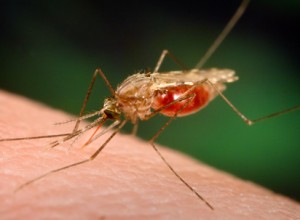No clear guidelines on malaria fund management at Assemblies – P4H
 There are no clear guidelines for the management of the 0.5 per cent of the Local Assembly Common Fund (DACF) allocated for malaria programming, a survey has said.
There are no clear guidelines for the management of the 0.5 per cent of the Local Assembly Common Fund (DACF) allocated for malaria programming, a survey has said.
The 2019 assessment, commissioned by People for Health (P4H), a USAID funded programme, looked into access to the fund by malaria-related interventions.
Mr Richard Anane Adortse, Monitoring and Evaluation Officer for the P4H project, said to the Ghana News Agency during a validation forum with stakeholders in the Nkwanta North District that though the survey polled a small cluster of Assemblies, it proved a working representation of the situation.
He said the absence of rules on the allocation led most local assemblies to use the funds on other priorities.
Mr Adortse said some District Health Management Committees (DHMCs) have reported as being kept in the dark on the allocation, or have expressed uncertainty over the Assemblies’ source of funding for malaria interventions.
The Officer, however, noted the willingness of the National Malaria Control Secretariat to help straighten out the fund’s utilisation and called on assemblies to prioritise the disease in the face of dwindling external support despite the increasing spike in cases.
He said working committees on the fund at both national and local levels must be considered.
Mr Emmanuel Agbodegli, a Director of Health in the Municipality, said the Directorate was not aware of the malaria allocation and called for the guidelines to be made public.
He also asked that the Health Directorate be involved in the management of the fund.
Mr Albert K. Osei, a Principal Executive Officer of the Assembly, said allocating money for malaria to Assemblies was not proper due to the irregularities in the allocation of the common funds.
He added that in the absence of allocation letters, access to the fund was suffering blockades of bureaucracy and even fraud.
Mr Osei said a fund management committee as constituted for the disability and the HIV provisions must be considered.
The P4H survey was undertaken by SEND Ghana, a Non-Governmental Development Organisation.
Send Ghana leads a consortium of three organizations working on P4H’s five-year project- Penplusbytes and the Ghana News Agency.
The project aimed at improving access to quality health service delivery in 20 districts from five regions including the Greater Accra, Eastern, Northern, Volta and the Oti.
It seeks to strengthen organizational and institutional capacities of government and other stakeholders, to attain mutual accountability in the formulation and implementation of policies in health, water, sanitation and nutrition.
Source: GNA
